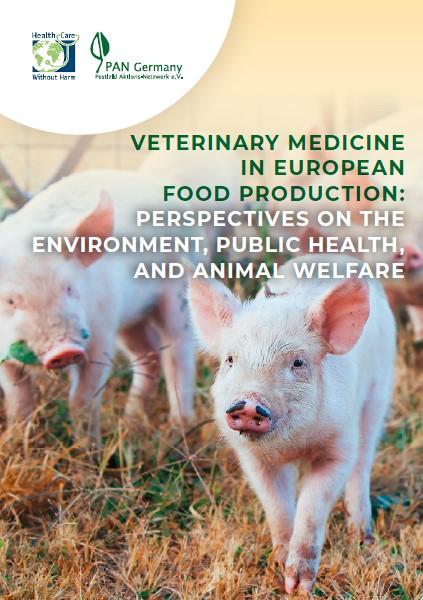Pharmaceuticals are essential for treating disease in both humans and animals. Yet veterinary medicines are frequently misused in food-producing animals to compensate for poor hygiene and sustain irresponsible farming practices that favour profits over the environment, human health, and animal welfare.
Veterinary medicines can accumulate in plants and non-target animals, where they can cause adverse effects on ecosystems, contaminating water and food, including drinking water. Antimicrobial residues in the environment can also contribute to the development and spread of antimicrobial resistance (AMR), a major global health threat responsible for at least 1.27 million deaths per year globally.

“Scientific evidence shows correlations between antimicrobial use in food-producing animals and AMR in humans. For example, a significant positive association was found between the consumption of fluoroquinolones and other quinolones in animals and resistance in invasive E. coli and in C. jejuni bacteria found in humans.”
The report is food for thought for the healthcare sector, which can use its moral authority and leverage its purchasing power to drive a shift in European food production towards a health-oriented system based on animal health. This allows for responsible veterinary medicinal use and a reduction of environmental and health risks.
Check our recent publication Reducing antimicrobial resistance in food production: How healthcare professionals can help to find recommendations on how to foster responsible antimicrobial use in food production, and join our #SafeguardColistin campaign to help reserve colistin for human health in Europe.
This publication is also available in German.